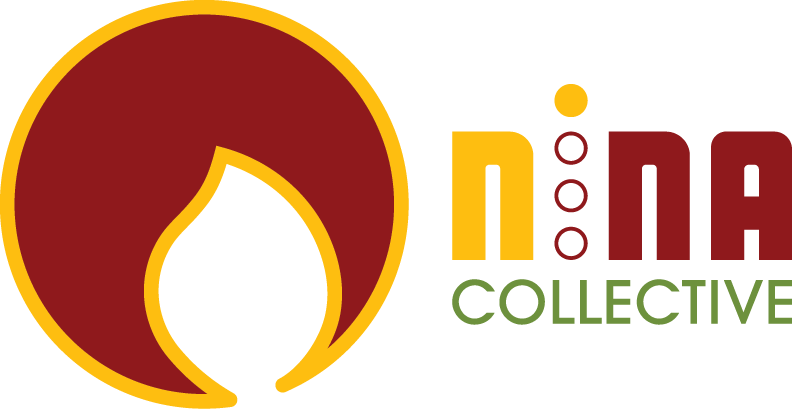Wellness and Social Justice: Balancing Self Compassion and Structural Change
At nINA, we understand that true wellness is not just an individual pursuit; it’s deeply intertwined with the broader social justice landscape. In our recent CHOIR conversation, hosted by nINA director ananda mirilli, we explored how we best resource our inner lives while continuing a steady focus on structural change, drawing on the insights of nINA affiliates Monica Caldwell and Dr. Armando Hernandez. Their reflections illuminated how personal experiences with wellness can highlight systemic challenges that affect us all.
Monica opened the discussion with a raw and honest reflection on her journey with self-compassion. "This summer has tested me," she shared, candidly addressing how physical challenges have sometimes led her to harsh self-judgment. The pressure to remain productive can often morph into feelings of unworthiness, prompting her to seek solace in distractions rather than mindfulness. "Instead of turning inward, I've found myself seeking escape," she admitted, underscoring the need for self-kindness, especially during tough times.
Armando connected with Monica's reflections by sharing his own recent challenges related to transitioning from travel back into work. "Transitioning from Puerto Rico yesterday back into work today, I realize I'm not embodying the core practices I know I should," he admitted. He emphasized the importance of having a dedicated transition day to support wellness, noting, "I still haven’t registered that need." This acknowledgment highlighted how essential self-care is in maintaining our effectiveness and connection to our work and community.
Challenging the Norms: Well-Being and Structural Inequities
The dialogue took a powerful turn as the participants delved into the pervasive narratives surrounding well-being, often steeped in the framework of white supremacy culture. Armando pointed out that many prevailing ideals—such as individualism and the right to comfort—create barriers that leave marginalized communities vulnerable to systemic inequities. "These narratives often favor some while sidelining others," he noted, emphasizing the need to challenge and dismantle these harmful constructs.
Monica framed self-compassion as an act of resistance. "Self-compassion is revolutionary," she asserted, citing Viola Davis's perspective on the necessity of self-love in social justice work. "To serve others effectively, we must prioritize our own well-being," she affirmed, emphasizing that nurturing ourselves is not just beneficial but essential to our collective efforts.
Core Elements of Self-Compassion
At the heart of this conversation were the three core elements of self-compassion, as articulated by Dr. Kristen Neff: self-kindness, common humanity, and mindfulness.
Self-Kindness: This principle urges us to treat ourselves with love rather than harsh criticism. When faced with difficulties, can we offer ourselves the same compassion we would extend to a dear friend? This gentle approach fosters resilience and understanding in our journeys.
Common Humanity: Recognizing that everyone suffers is crucial. We are not perfect, and acknowledging our shared experiences fosters connection. As ananda poignantly expressed, “When my community suffers, I feel suffering too.” This insight reinforces nINA’s mission, highlighting our collective belonging within a beloved community.
Mindfulness: This element invites us to acknowledge our struggles without judgment. Instead of reacting impulsively, we can learn to be present with our feelings, validating our emotions, especially during moments of distress.
In addition to these foundational elements, Dr. Neff also introduces tender and fierce self-compassion. Monica highlighted the importance of tender self-compassion, emphasizing the need to nurture ourselves with warmth and understanding. "We must give ourselves permission to care for our own needs," she asserted, illustrating how this nurturing aspect is vital for maintaining our well-being amidst challenges.
On the other hand, Armando resonated more with fierce self-compassion, which empowers us to advocate for action and confront oppression. “It’s about setting limits and having an authentic voice, even when it’s angry,” he stated passionately. This fierce compassion allows us to stand firm in our convictions while nurturing ourselves through the demanding work we undertake. “My fierce compassion is valid, even when it feels unwelcome,” he reflected, pointing to the need for authenticity in a world that often stifles it.
Join the Conversation: Wellness in Action
As we are bombarded daily with news that is interrupting our wellness and threatening our collective work for social justice, we invite you to engage in this ongoing dialogue. Our next nINA event, Collaborator Connections, on July 24, is part of our Summer/Fall Series, Another Way is Possible. This series aims to unite racial justice practitioners committed to co-liberation and transformative change.
Join us as we cultivate a supportive community, share experiences, and develop strategies for fostering wellness within our movement. Together, we can create a space where personal and collective liberation flourish.
Event Details:
Event: Collaborator Connections
Date: July 24
Theme: Another Way is Possible
For more information and to register, visit nINA's event page.
Let’s embrace the journey toward wellness together, recognizing that self-compassion and community care are essential in our fight for a more just and equitable world.
